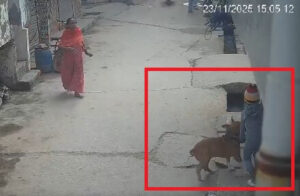SC feels PILs being used for personal, political, business agenda

The Supreme Court of India (File Photo)
New Delhi : The Supreme Court on Thursday expressed serious concern over the manner in which Public Interest Litigation (PIL) was being “brazenly mis-utilised” by persons with a personal, political and business agenda.
Observing that PIL has “developed as a powerful tool to espouse the cause of the marginalised and oppressed”, Chief Justice Dipak Misra, Justice A.M. Khanwilkar and Justice D.Y. Chandrachud said it was being “brazenly mis-utilised by persons with a personal agenda” and to settle business and political rivalries.
“The misuse of PIL is a serious matter of concern for the judicial process,” the court said. “Both this court and the High Courts are flooded with litigation and are burdened by arrears.
“Frivolous or motivated petitions, ostensibly invoking the public interest,” the court said, “detract from the time and attention which courts must devote to genuine causes.
“Business rivalries have to be resolved in a competitive market for goods and services. Political rivalries have to be resolved in the great hall of democracy when the electorate votes its representatives in and out of office,” the judges said.
The time and space of court should not be utilized to settle “extra-judicial scores”, the judges said.
The court said taking a dim view over the manner in which PIL route was taken for seeking a SIT probe into the death of Judge B.H. Loya in 2014 at Nagpur. He was heading the trial court that was holding a trial in the Sohrabuddin Sheikh shootout.
Holding that PILs were a powerful instrument to preserve the rule of law, the court said: “Yet over time, it has been realised that this jurisdiction is capable of being and has been brazenly mis-utilised by persons with a personal agenda.”
Speaking for the bench, Justice Chandrachud said: “At one end of that spectrum are those cases where PILs are motivated by a desire to seek publicity.”
The motivated petitions “pose a grave danger to the credibility of the judicial process”, the judges said.
IANS





